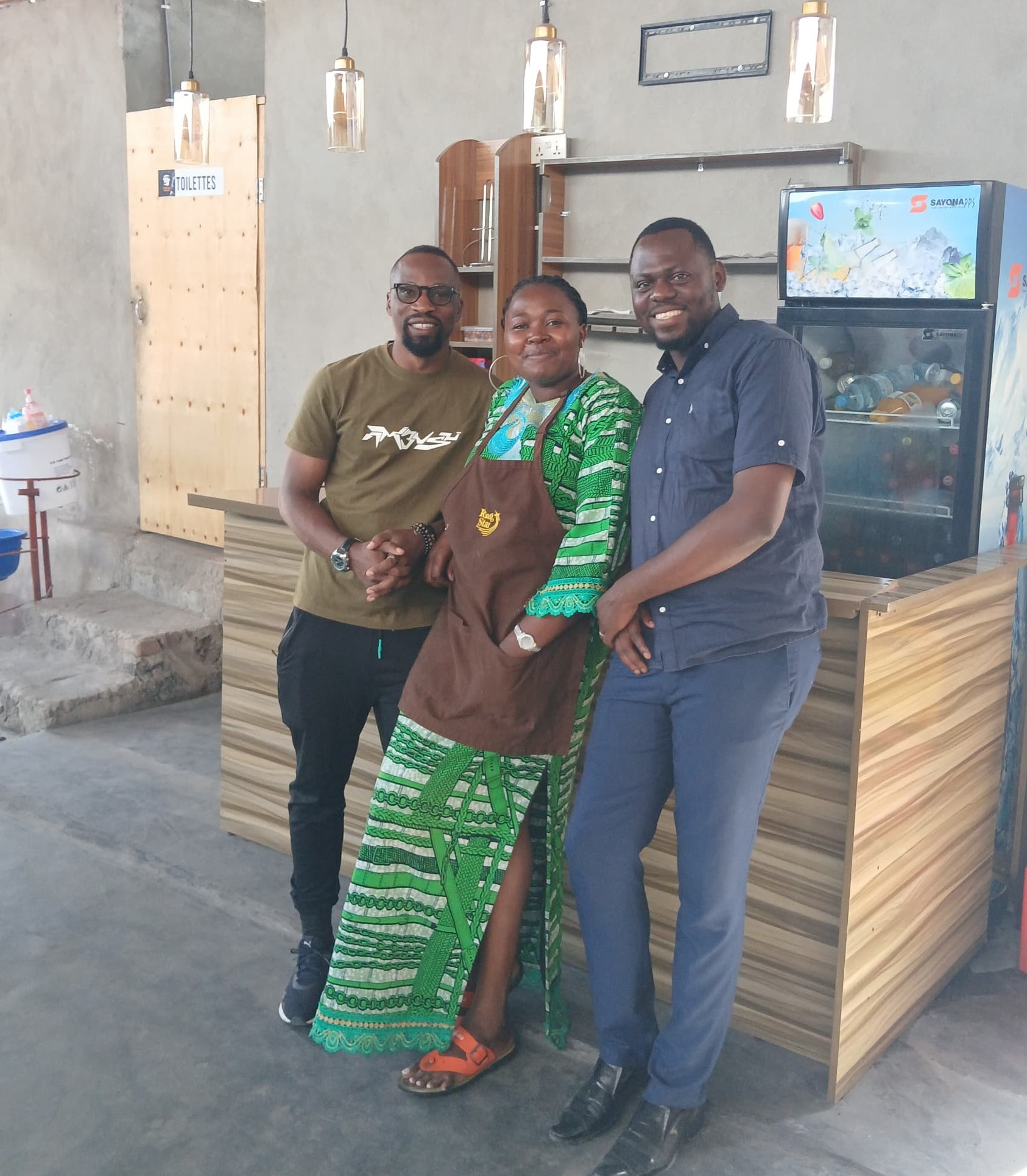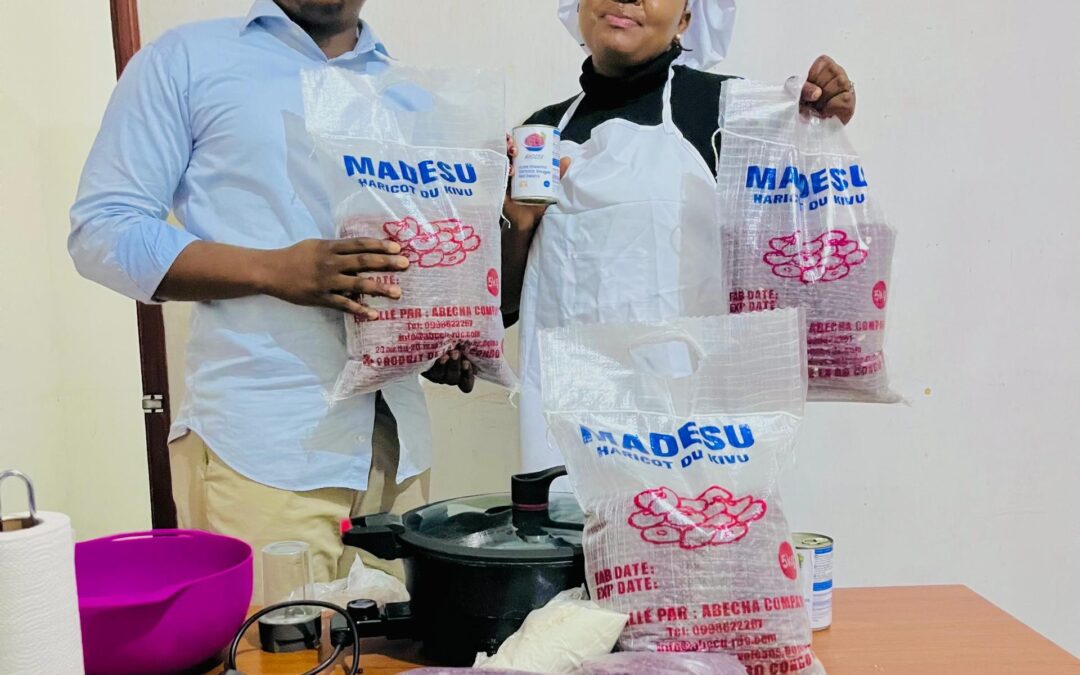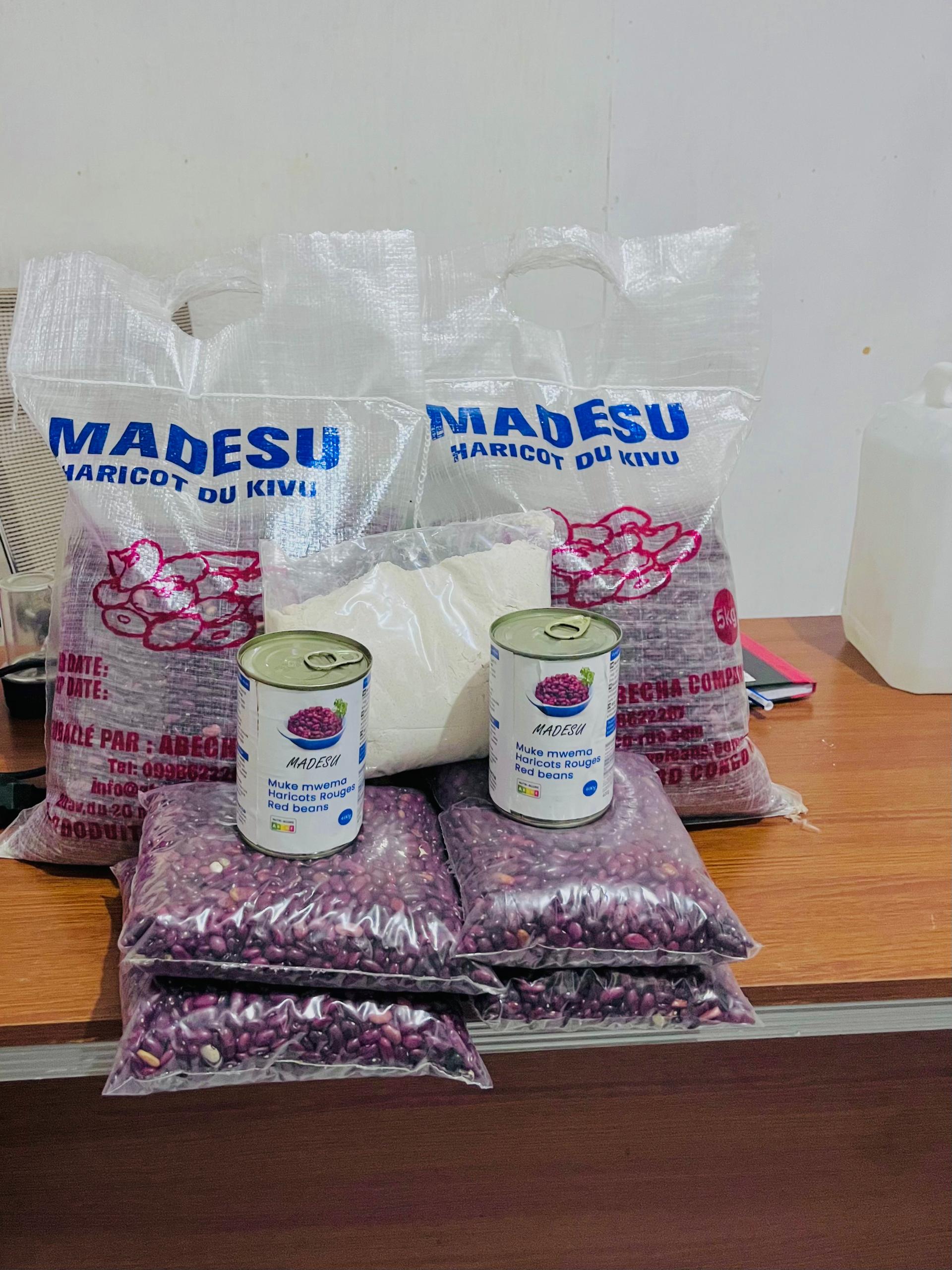By Napoleon Kajunju, Jean Claude Rubyogo, Bola Awotide, Lydie Mulonda, Paulin Njingulura, Julie Ntamwinja, Lucky Kalisya, Nepomuscene Ntukamazina
In a city where food insecurity shadows daily life and opportunity feels just out of reach, Sadiki and his wife Huguette dared to see something different in a bean. Inside a crowded market of Goma, Eastern Democratic Republis of Congo (DRC), where rice and maize dominate the stalls and household tables, beans have long been a quiet staple. But to the couple, founders of the agri-enterprise ABECHA, beans were not just food, but potential.
What began as a modest idea to package locally grown beans in clean, consumer-friendly formats, quickly turned into a mission.
“People buy rice in packages. They buy maize in packages. Why not beans?” Sadiki recalls. “We saw the gap and stepped in.”
What followed later was not an overnight success, but a steady climb, and in 2023, everything changed.
An initiative becomes a turning point
That year, the couple joined the Beans for Women Empowerment (B4WE) initiative, an ambitious effort led by the Alliance of Bioversity International and CIAT, through the Pan-Africa Bean Research Alliance (PABRA), with support from the Global Affairs Canada (GAC).
Focused on strengthening bean value chains in Eastern DRC, particularly for women and youth, B4WE offered exactly what ABECHA needed: training in agribusiness management, bean handling, branding, and value addition. For Sadiki and Huguette, the training was more than just technical support. It was a catalyst.
With guidance from the project, they rebranded their products under the name “MADESU Products”, a tribute to the Swahili word for beans, which is also familiar, trusted, and rooted in Congolese culture. They diversified their product line, offering graded dry beans in consumer-ready sizes, and soon after, introduced canned beans fortified with iron and zinc to help combat malnutrition.
Learning across borders, scaling at home
Inspiration struck again when the couple joined a B4WE-supported exchange visit to Uganda. There, they saw firsthand how regional agribusinesses were using mechanization to boost efficiency and meet rising demand. They returned to Goma with a new ambition and acted on it.
ABECHA acquired a bean-sorting machine, scaling their processing capacity from 500 kg to 5,000 kg per month. Suddenly, quality improved, consistency stabilized, and new opportunities came knocking.
Soon after, ABECHA secured its first major contract: 1,000 bags of beans for displaced people’s camps in Goma, followed by a second deal in Bukavu. Orders grew, and so did their team. What started as a two-person effort expanded into a workforce of 30 people, most of them women, with five full-time staff and 25 part-time workers brought on as needed.
From household growth to community impact
By the end of 2024, ABECHA’s monthly income had skyrocketed from $217 in 2022 to $1,610, a sevenfold increase. This was not just a business win, but a family transformation. With greater income came the ability to save, invest, and plan.
But the ripple effect did not stop there. ABECHA began sourcing from a growing network of 54 women bean farmers, helping them scale their collective production from 2,598 kg to over 22,000 kg. Where these women once faced low yields and limited market access, they now had a stable buyer, better prices, and new motivation to grow.
A model of what’s possible

With support from B4WE, Sadiki (right) and his wife Huguette’s entrepreneurial dream took a powerful new direction
ABECHA’s success is more than just a family milestone. It is proof of what’s possible when bold ideas meet the right support. In one of the world’s most complex humanitarian environments, Sadiki and Huguette have shown how innovation, training, and partnerships can unlock real, scalable change.
“We believed in what beans could do. Now we see what we can do with beans,” concluded Huguette.
This is also a lesson in local leadership. From bean sorting to brand development, every step of ABECHA’s journey reflects the core philosophy of the B4WE project: empower from within, and transformation will follow.


